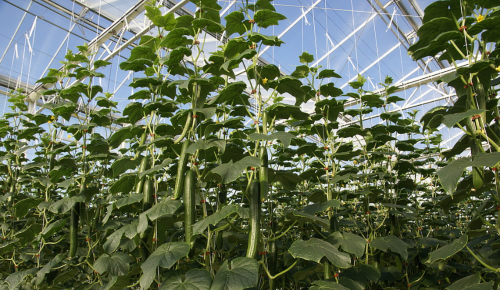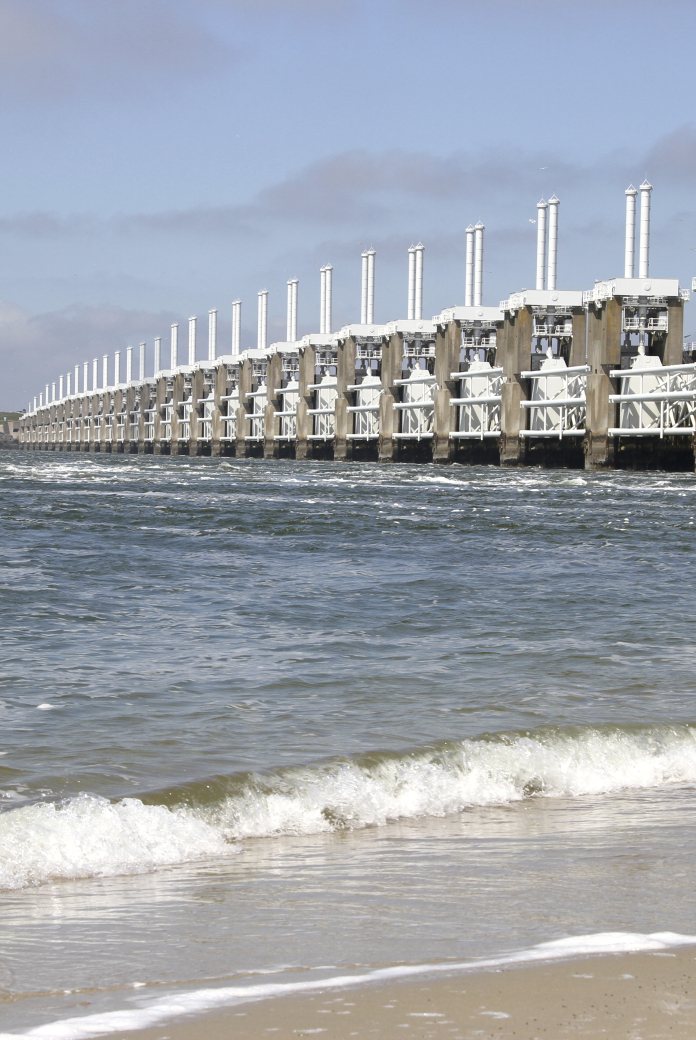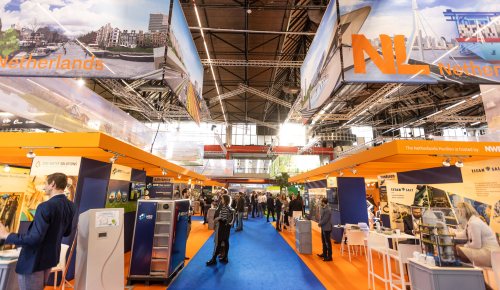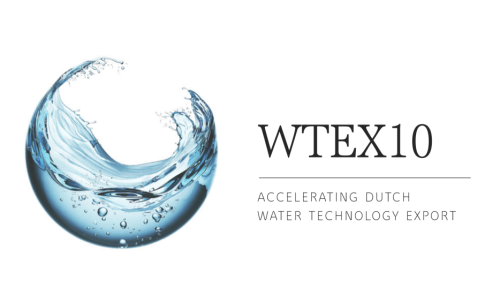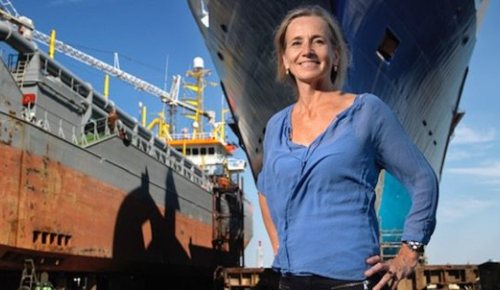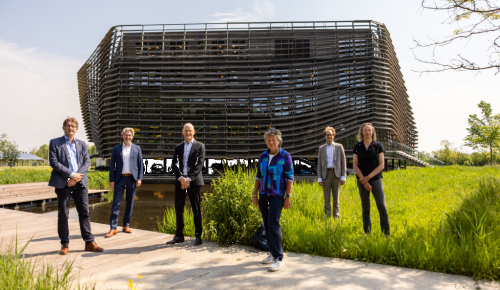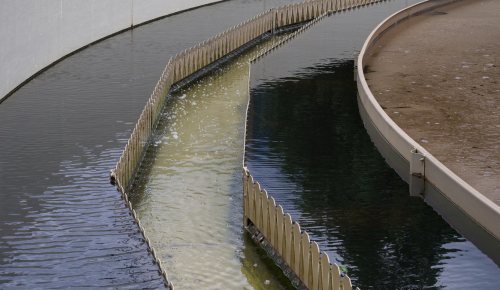News
2 April 2020Action programme to expand Dutch water exports
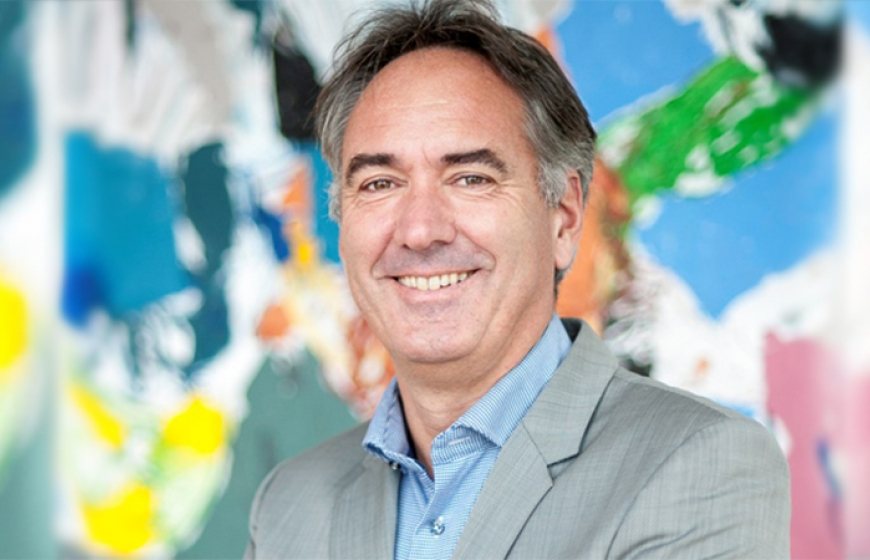
Boosting Dutch water technology sector exports in the next decade. This ambitious goal of the Topsector Water & Maritime, the Dutch Entrepreneurial Development Bank (FMO) and the Netherlands Water Partnership (NWP) was announced earlier this year. To bring this about, a special action programme was recently launched, headed by Steven van Rossum, CEO of World Waternet, who was appointed as the programme manager. In this interview, he tells us more about the programme and his assignment.
What does the programme entail and where do you start?
“In the first phase of the programme, which is starting now, we will develop a business plan and follow-up process. The plan should describe the approach to scaling-up the Dutch water technology sector’s exports. The business plan and follow-up process will be presented at a round table session with relevant stakeholders in mid-June 2020.
The programme will allow us to draw up clear and practical models and then set up concrete projects to boost water technology exports. A lot of research has already been done, so we do not need to do any more. I don't need a new round of interviews or a new study, and neither does the sector. Of course we will test the findings with the actors who implement them in practice. After this review, the real work will start. We will initiate and facilitate concrete projects and get them off the ground.”
How will you define the models that will underpin the projects?
"In different ways. For example, we are further elaborating the recommendations of the NWP and FMO report that relate to streamlining and better aligning existing financial instruments. Linking water technology to financial expertise is essential. Many companies and organisations in the water sector are engaged in financing in one way or another, but for most of them it is not their core business. It is important to get in-depth knowledge. That is why the collaboration between NWP and FMO is so important. Initiatives such as WaterWorX by the drinking water companies and the Blue Deal with the Dutch Water Authorities are very valuable. But the objectives - to provide tens of millions of people with drinking water and sanitation - are accompanied by high investment: billions of euros are needed. Neither drinking water companies abroad nor governments have that kind of money. International financial institutions therefore have to step in, and smart financial engineering is required to offer full-service solutions.
Most investments involve public tenders. Does this entail particular challenges?
"The water technology sector is largely in the hands of the public sector, with governments as clients and agencies such as the World Bank as donors. So tenders are inevitable. It is important for the Dutch water sector to promote quality-driven solutions for these tenders because cheap solutions often turn out to be more expensive. Carefully defined quality solutions will ultimately make bids more affordable and consequently increase the chances of the Dutch sector winning tenders. In this respect, we can learn from our international competitors. We need to explore and push the boundaries more."
What is the best approach for these tenders?
"The first step may be to select the tenders in which quality is important. Subsequently, we can put together a consortium that will best qualify for the tender. In the Netherlands, we often take our skills and expertise as the starting point when bidding for a tender. But these skills are not always the ones being sought, so our bid does not sufficiently meet the tender. Furthermore, we have less experience in tenders involving management and maintenance. Each tender is different so we need to be able to adjust our offer accordingly and fill in the gaps. And we need to include funding in the offer as well, and ensure that our consortium includes a local actor such as a contractor. And furthermore, let’s not forget the private sector in terms of our solutions for industrial water. Here too, tenders require tailor-made consortia that bring along financial solutions.”
What can Dutch water authorities and drinking water companies contribute?
"Of course they bring their own knowledge and craftsmanship. Further, they have established good relationships abroad through their international projects, and these networks can be very useful. Let me also add that both drinking water companies and water authorities work with tax revenues and are expected to spend most of that money in the Netherlands rather than abroad where there may be more high-risk investments. However, being one of the partners of a consortium bidding for tenders can be non-risk bearing.
Some entities like the Asian Development Bank (ADB) awards extra points in tenders if public water companies are part of the consortium. Water companies have the desired experience in components such as training, starting up treatment plants and setting up an administrative organisation. Dutch water utilities can also assist in writing sustainable investment proposals, which can be a valuable help in winning tenders. For ADB and other international financial institutions, the participation of water authorities and drinking water companies gives them greater certainty of sustainable solutions being found and that loans will ultimately be repaid. This means that cooperation between public and private parties in a consortium can be fruitful for both. It strengthens the chances of winning tenders and helps WaterWorX and the Blue Deal achieve their objectives."
Is closer cooperation something the Dutch sector still has to get used to?
“I think so. Much has been said about cooperation, but in reality there is room for improvement. Internationally, at the right time and in the right circumstances, we should be able to make joint Dutch offers more often. This programme will hopefully help bring parties together and ensure that all the necessary expertise is available and committed. The expertise could be public, private, business, scientific, and financial. Private banks are also interested, and even though public water technology is a relatively unknown territory for them, they are looking for workable forms of cooperation. And this programme will help develop these forms."
What would be a good result in two years’ time?
"I would be very satisfied if we have been able to facilitate at least three successful projects by then and thus developed various models that prove their effectiveness in practice, meaning that they are models that generate turnover, are replicable and have growth potential. If we achieve that, we will certainly be able to broaden and scale up Dutch water solutions and be a step closer to expanding the Dutch water sector’s joint operations across the world. Budgets for water and sanitation worldwide are immense and are continuing to grow. And water and sanitation are things that the Netherlands is very good at. So let’s cooperate to put these two together!"
About the programme
The programme is an outcome of: the report published by NWP and FMO in September 2019; the round table on scaling-up the Dutch water technology sector towards 2030 on 6 November 2019, organised by Topsector Water & Maritime; and the high-level dinner on 16 January 2020 on the report. The programme’s clients are: the Ministry of Economic Affairs and Climate; Topsector Water & Maritime; FMO; and NWP. The steering committee comprises: Annemieke Nijhof (Topsector Water/NWP); Focco Vijselaar (Ministry of Economic Affairs); Janet Nieboer (FMO); and Menno Holterman (Nijhuis Industries). A number of NWP and FMO specialists will work alongside Steven van Rossum in the programme team.
